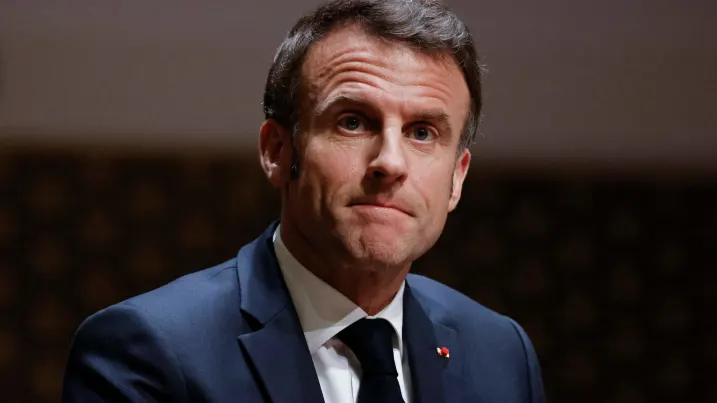France’s National Rally Leads in First Round of Snap Election, Exit Polls Show
In a dramatic turn of events, the first round of France’s snap parliamentary election has indicated a significant surge in support for the far-right National Rally (RN) party. According to early polling data from the national broadcaster France 2, the anti-immigrant RN secured 34% of the vote, positioning it as the leading party in this election. This marks a notable shift in the French political landscape, as President Emmanuel Macron’s centrist alliance, Together, has fallen to third place with only 20.3% of the vote. Meanwhile, the leftist New Popular Front (NFP) alliance garnered 28.1%, coming in second.
National Rally’s Rising Influence
The RN’s impressive performance in the first round reflects a growing discontent among voters with the current political status quo. Marine Le Pen’s leadership and the party’s hardline stance on immigration and national security have resonated with a significant portion of the electorate. This surge in support underscores a broader trend across Europe, where far-right parties are gaining traction by capitalizing on issues such as immigration, economic uncertainty, and national sovereignty.
Marine Le Pen, the leader of the National Rally, expressed optimism following the release of the exit polls. “This result is a clear signal from the French people. They want change, and they want policies that prioritize their security, jobs, and cultural identity,” she said in a statement. The RN’s strong showing suggests that it could play a pivotal role in shaping the future direction of French politics, particularly if it maintains its momentum into the subsequent rounds of the election.
Macron’s Centrist Alliance Struggles
President Emmanuel Macron’s centrist alliance, Together, faced a significant setback in this first round of voting. Garnering only 20.3% of the vote, the bloc’s third-place finish highlights the challenges Macron faces in rallying support for his centrist policies amidst a polarized political environment. Macron, who has championed pro-European Union policies and economic reforms, now confronts the reality of diminished influence in the legislative arena.
Political analysts suggest that Macron’s administration has struggled to connect with voters on key issues such as economic inequality and immigration. The rise of both the RN and the NFP indicates a fragmentation of the traditional political landscape, with voters increasingly turning to more polarized options on both the right and the left.
The Leftist New Popular Front’s Position
The leftist New Popular Front (NFP) alliance, led by prominent figures from various left-wing parties, secured 28.1% of the vote, placing it in second position. The NFP’s platform, which emphasizes social justice, environmental sustainability, and wealth redistribution, has found favor among voters disillusioned with centrist policies. This result positions the NFP as a crucial player in the upcoming legislative battles, potentially serving as a counterbalance to the RN’s far-right agenda.
Implications for the Future
The initial projections based on samples of actual results from polling stations paint a picture of a deeply divided French electorate. The second round of voting will be critical in determining the final composition of the parliament and the extent of influence each party will wield. As the RN and NFP prepare to consolidate their gains, Macron’s Together bloc will need to reassess its strategy to regain voter confidence and avoid further erosion of its support base.
Conclusion
The first round of France’s snap parliamentary election has highlighted significant shifts in voter sentiment, with the far-right National Rally leading the pack. As exit polls indicate a substantial lead for the RN, the French political landscape appears poised for considerable change. With Macron’s centrist alliance trailing behind, the stage is set for a highly contested second round that will determine the balance of power in the French parliament. The evolving dynamics underscore the electorate’s desire for new approaches and solutions to the pressing issues facing the nation.

